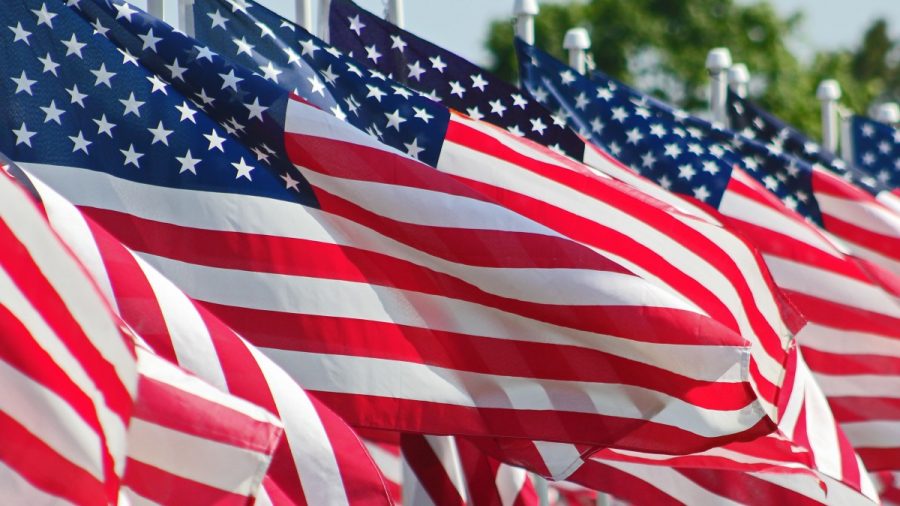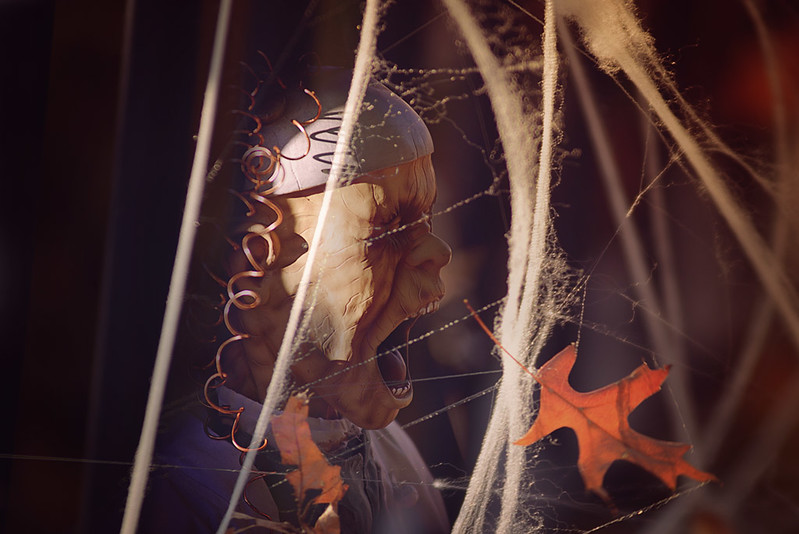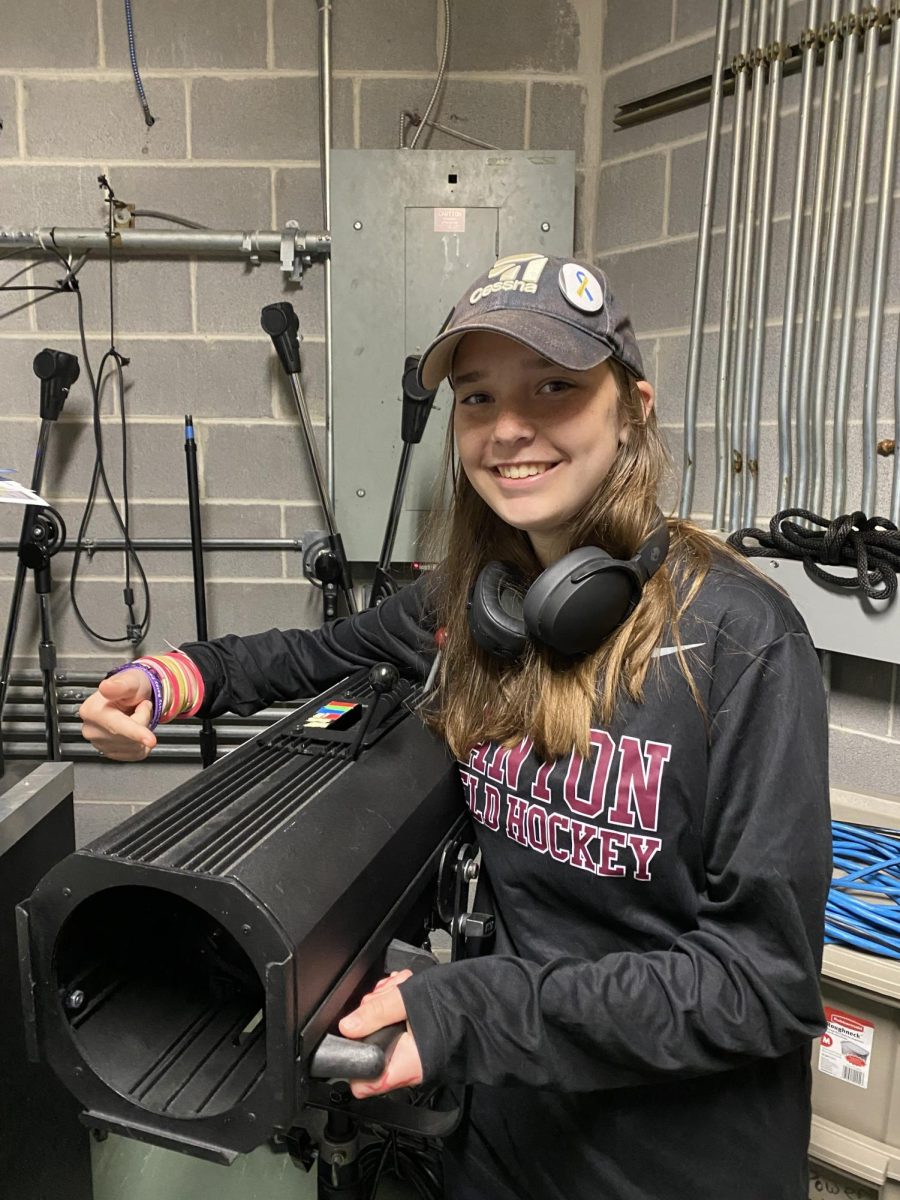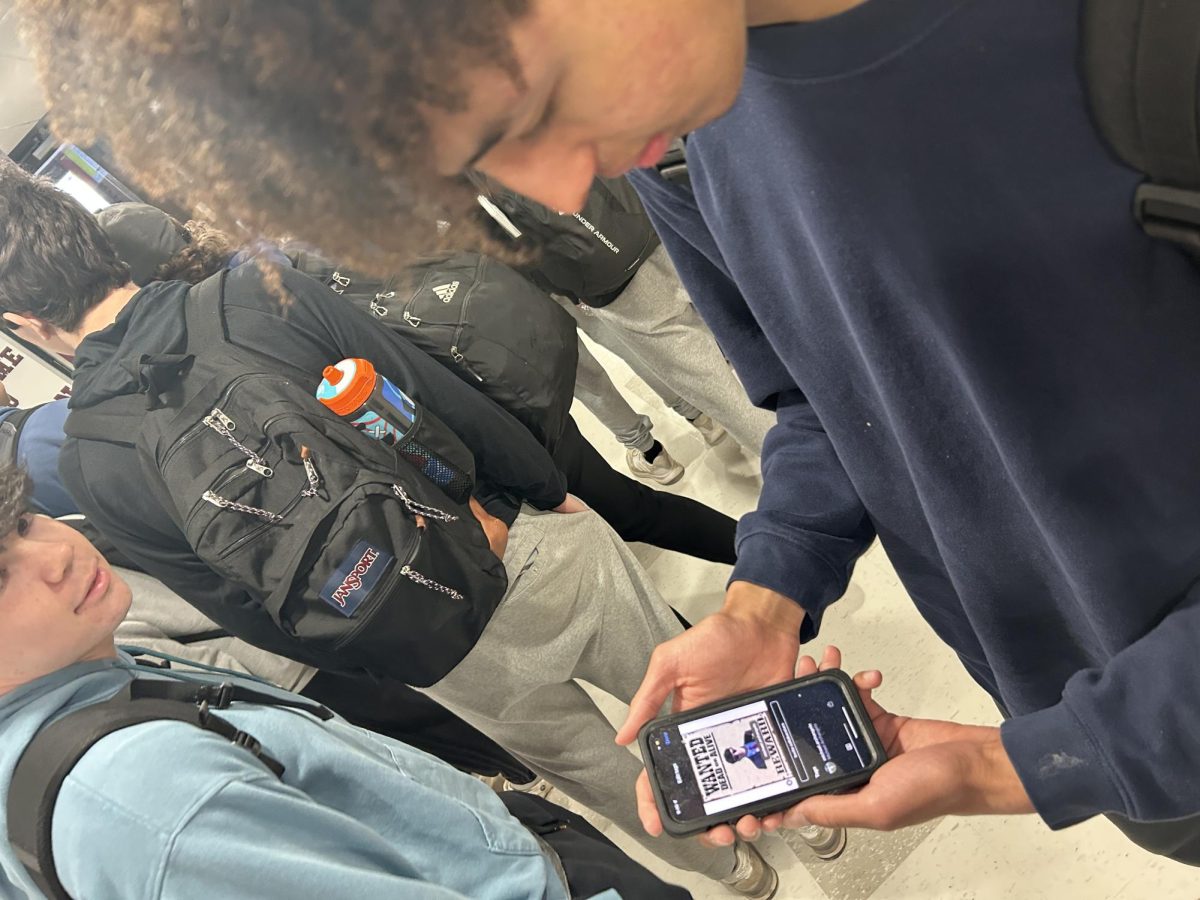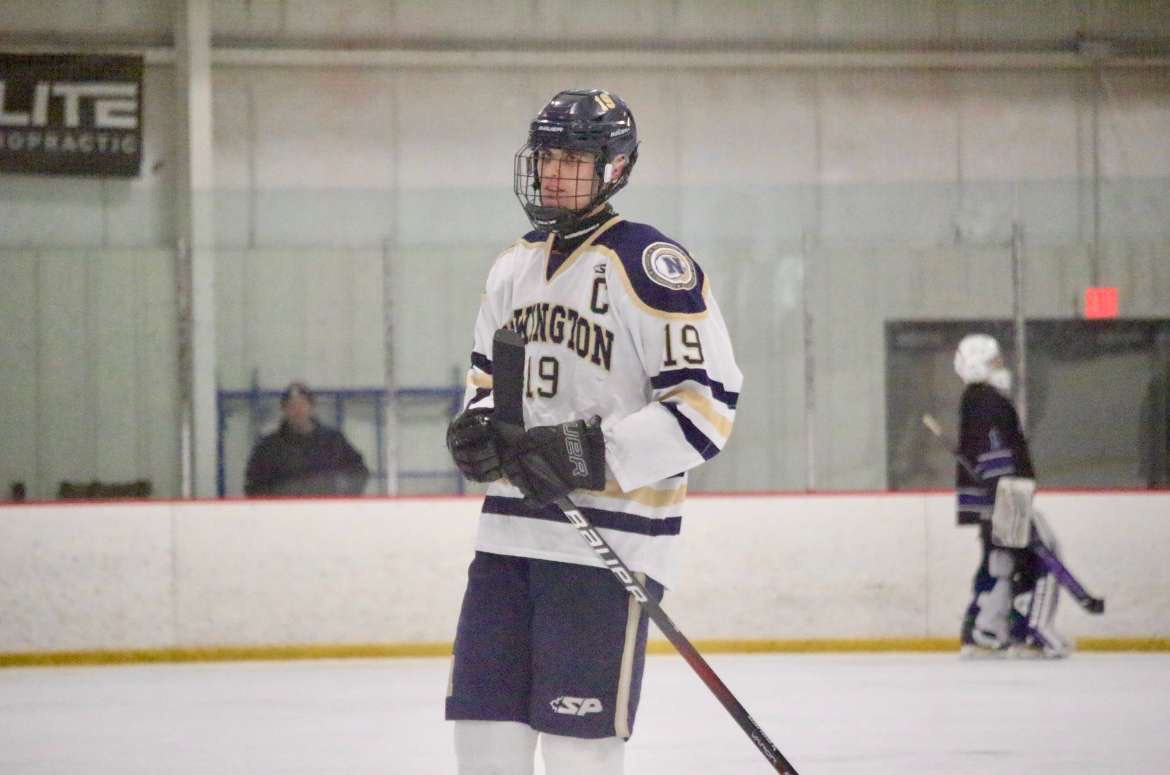
Art Ostheimer
U.S. Air Force, T/SGT
Radar Repairman
1947-1954
Japan Occupation Korea
Interviewed by Jacob Benedetti
In Korea we had no relationship with the population, hell they were living in holes, it was terrible. In Japan I did have a little bit of a relationship. I ran a typewriter shop temporarily because the guy had an operation because he was sick so I got about six weeks of running a typewriter shop. They just put me in there because they needed somebody to run it and there was all Japanese people. I got to know a bunch of Japanese people, and when I left to go back to the original job, they invited me to a dinner. So I went to the dinner and geez I was sitting between two admirals. I remember one pilot saying he shot down some Hellcat and he was bragging about shooting down some Hellcats, I was about ready to kill him, but I controlled myself. It was interesting, the culture, because the Japanese people really surprised me. They were very contented with what they were doing. I really had no problems with the Japanese people at all that I know of.

Brian O’Donnell
Army, Specialist (E-5)
1968-1970
Vietnam
Interviewed by Jeanne Bedard
I was really young. I went into the army at twenty. And, uh, I was drafted. I didn’t want to go. Crazy war. But they gave me a huge amount of responsibility for such a young person. I ran thirty helicopters, had three platoons. Everybody relied on me to keep track of how many hours a helicopter can fly before going to maintenance, how many hours the pilots had, scheduling missions and telling them where to go. A lot of responsibility for such a young person.
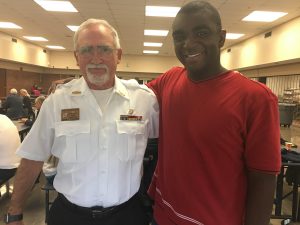
Carl Heinzelman Jr.
Marine Corps
Corporal (E-4)
Ammunitions Technician
1965 – 1969
Vietnam
Interviewed by Evan Mingo
Some of the stuff I can’t tell you. Let’s see…One of the days we had a connex box – you know like a small shipping container? Inside of the box were Vietnamese captured weapons. Captain Pope decided that he wanted one. He was Lieutenant Pope at the time. He said ‘Well I’m going down to the regimental area to get a grease gun from the connex box, I always wanted one’ and he left. We grabbed Smitty, who was really skinny, got a crowbar, and crowbarred the connex box open so Smitty could squeeze in and start looking for the grease gun! But while he’s doing that, the Staff Sergeant comes up with a truck and forklift, and picks the frigging box up. I ask ‘what’re you doing?’ and he responded, ‘We’re bringing this down to Regiment’, and I cry ‘SMITTY’S IN THE BOX!’ and the Staff Sergeant says ‘Oh ok we’ll get him out’. So we’re waiting trying to figure out how we’re gonna get him out, and the truck leaves. So we call regimental area, and say we need to speak to Lieutenant Pope. The guy on the phone responds, ‘Lieutenant Pope isn’t here; but Captain Pope is, he just got promoted.’ So my buddy gets on the phone and says, ‘Congratulations Captain Pope, uhhh…but we have a problem.’ Captain Pope goes, “Well what’s that?” and my buddy responds, “Smitty got shipped out.” Pope asks “What do you mean?””, and my buddy answers “You know the connex box on the way to the Colonel? Smitty’s in it”. To this day I don’t know how they got him out.
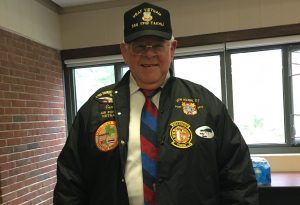
Eugene Dzialo
U.S. Air Force
Sergeant
Weapons Control System Mechanic
1966-1970
Vietnam
Interviewed by Lauren Eschenbrenner
In Thailand, we had to deal with bugs. There were these large beetles, and it was delicacy to the Natives, and they would pay us a nickel for them. So a lot of the guys would collect them and sell them for the natives. We had snakes, we had cobras, and at night they would like to layout in the road to stay warm. Once a month we would be rotating bases, and we would be driving these maintenance trucks, and all the people that are servicing the planes would rotate, so we would drive it and pick up these guys and we would be bumping over the snakes. And the heat; it never cooled down. The rain came down horizontally.
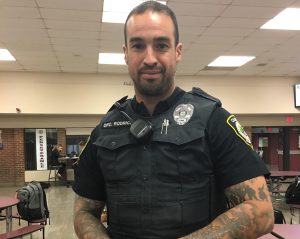
David Rodriguez
National Guard Army
E5 Sergeant
Infantry, Mortarman
2006-2012
Afghanistan
Interviewed by Lauren Eschenbrenner
My daughter was born [on] September 1st, 2006. We were out for four days on a mission, and the day before or maybe even the same day, we came to a remote area, and a bunch of kids came running out from the village asking for pens, water, food. It must’ve been twenty kids around our trailer asking for stuff. So we had some downtime and decided to teach them a game from The States: duck duck goose. It was pretty comical- bunch of Afghan kids sitting around. I had an interpreter, I always had one with me, so he translated everything. So we were teaching them the game and apparently, goose has a different meaning in their language, so goose to them was like the word fart, so it was duck duck fart to them. It was pretty comical. Also the Afghan kids don’t have shoes, it’s all gravel, no grass, so they were tripping and face planting, I felt pretty bad when they fell, but it was pretty funny- duck duck fart. Probably twelve hours later my daughter was born.

James (Jim) Hutton
United States Air Force
Captain
Aircraft Maintenance Officer
Vietnam
Interviewed by Cole Marcuccio and Jack Mansur
I was in my office one day, maybe in the early afternoon, and the four guys who were on the night shift appeared in my office. There was something wrong and they were not happy. What happened, they lived in a villa in a suburb of Saigon [Vietnam]. They were sitting, each of these villas had a little courtyard, a walled courtyard, out front and they were sitting in the courtyard drinking beer in the afternoon and two kids, about your age [teenagers], went by on a bicycle. The kid on the back threw a hand grenade at them. Luckily they saw it, got it, threw it out. But what they wanted was they wanted me to get them rifles so they could go get them [the kids on the bicycle]. So, that’s an example of what you’re dealing with when you’re fighting these so-called “guerilla wars,” a fourteen-year-old kid throwing a hand grenade. And if an American soldier had killed them it would have been an international incident.

Thomas H. Shannon
U.S. Army Engineer
Ist Lieutenant
Platoon Leader
1970-1971
Vietnam
Interviewed by Julianna Iovine
A low point [during my service in Vietnam] was living in a hole in the ground [for] self preservation, and if you were to ask that question to anybody who was in vietnam, if you ask a million people, you’d get a million different answers. In my instance, I was in Vietnam for the invasion, and our unit was the spearhead who launched the invasion…and we opened up a casson on the main road and it was a very interesting time. A dangerous time.
Well the best of times, we would get a half a day off on Sunday, and one thing about engineers, there is always opportunities to do work. You’re always improving your defensive positions. For example, driving down the road where there was elephant grass…10 or 12 feet high… one of the favorite duties was to push back the jungles so you’d have a better visibility of the enemy approaching you, and fields of fire as we call it. But entertaining…I mean yeah. If our commander was happy with the way things were going then yeah. I remember one day we all went down to the river, and went swimming in the river…another time we went to the beach. Well we almost went to the beach, I should say. Snipers opened up and that was the end of that excursion. One guy would have a guitar, and sing around in the evening.

Sean Cole, Security Director for School District
Army
Military Police
1983-1986
No major wars, conflict in Granada
Interviewed by Jeanne Bedard and Colin Duran
The greatest thing for me, I’ll say this. If you hear nothing else, you hear this. I wasn’t a great student in school. Fair, but not great. I didn’t realize what my brain was capable of. Until I got in the military. Military payed for my associates degree, two bachelor’s degrees, and it wasn’t until I got into the military that I realized: Okay, I have a brain, this is what I should be using it for. So it helped me navigate life a little better after flunking out of a year of college.
I went to college to play football, not to go to school. You can’t do that, whether it’s 1981 or 2017, right? It doesn’t matter, you still have to do the right things. And the military helped me be a better person and like I said the academic and educational opportunities. And the military still provides that for veterans. I mean it’s great. That’s why a lot of countries have mandatory service. If you finish your traditional high school and you have an aptitude to build things, well you go off to this building-type school. If you have an aptitude for continued academic learning—doctor, lawyer, whatever—you go to that school. And if you have other skills, then you go into the military and you apply those skills in the military. Not that I’m saying our country should be like that, but, especially now because we’re in crap all over the world now, right, and it’s just not cool. I have two adult kids and if they said “Dad, I’m going to join the military”, I would be concerned, but at the end of the day it would be their decision. It’s just, as a parent, nowadays it’s tough, kids are going in the military. But the big thing is the educational part, for me. I knew I wanted to do something, I just wasn’t ready. After three years of military service I cleaned my act up a little bit.

Greg Sims
U.S. Army
E-5
Vietnam
Interviewed by Linnea Fiedler-Hoerle
Another time I can remember, 5 days to go, I was up at Pleiku and all of a sudden, “hey! Serg! You can sign out a jeep!” because sergeants can, I said “why would I want to sign out a Jeep? I’m protected here at the base; I got 5 days to go before I go home.” “Oh, we’ll just go to Pleiku city.” Are you kidding me? I lasted over a year and you want me to go to Pleiku city? Well, we went to Pleiku city, because they wanted to go down and get some souvenirs that they could take home – Zippo lighters and you know – stupid stuff. I got the jeep (against my will) and we’re standing in a store. I think I got three zippo lighters. So I’m sayin “c’mon c’mon let’s get out of here” and I happen to look to my right, and I see this little boy with a shoe box. He comes walking in, and I say “chào boy” Hi boy, y’know, and he looks at me and nodded, so I say again to my guys “you guys ready? Let’s get out of here!” and I looked again and I’m thinkin “where the hell did the kid go?” and oh no, there was the shoe box, and I went “no no no” and I grabbed the shoe box, threw it out into the street, and it exploded before it even hit the ground. I’d been there long enough; shoe box, kid’s gone. All they had to do is say here’s 50 cents, three G.I.’s went in there, bring the shoe box in there and leave. It could have wiped out the three of us and who knows… However many else were in there.
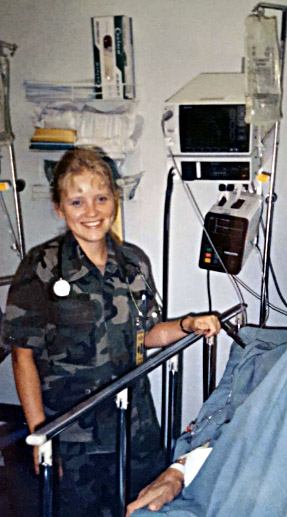
Barbara Fischler
U.S. Army
Nurse
2nd Lieutenant
Gulf War
1884-1991
Interviewed by Lauren Mix
I guess some of the big memories are the weapons training. That was just way out of my world and the big machine gun will always be the memory because they had two of them and these are heavy heavy objects. The men in Vietnam they had them carry them around. They just had them set up in a bunker and…said “hey did anyone want to do this.” and even at 19 I still thought, “wow when I’m 80 this will be quite a memory,” so I said that I’m going to do that. I remember firing grenade launchers and all this stuff and like I said it was just a huge change from my everyday life and the life of my peers. Like my friends were coming home from summer break and telling me how they went to Nantucket or they went on a trip with their family this summer but I went to Fort Dix.
Categories:
Veterans' Voices
November 26, 2017
0
Tags:
